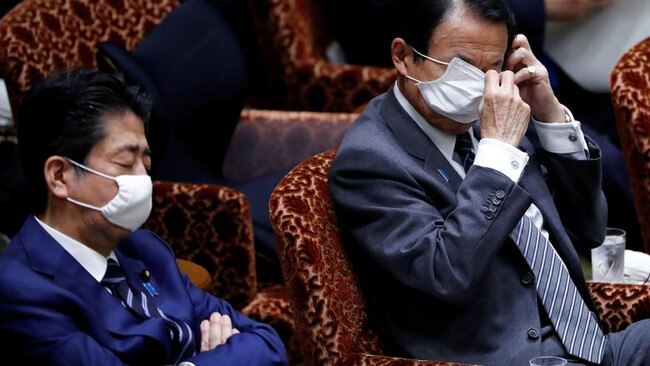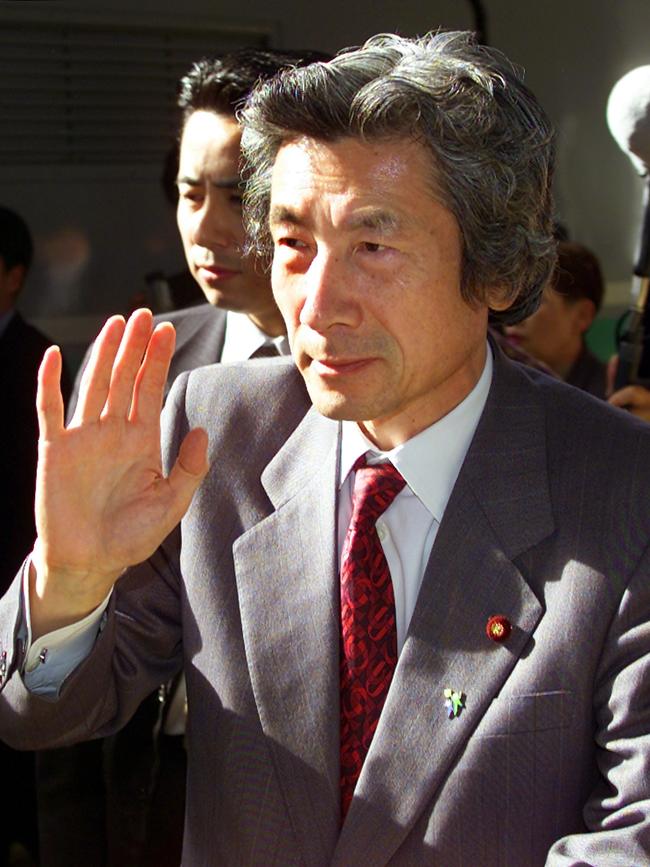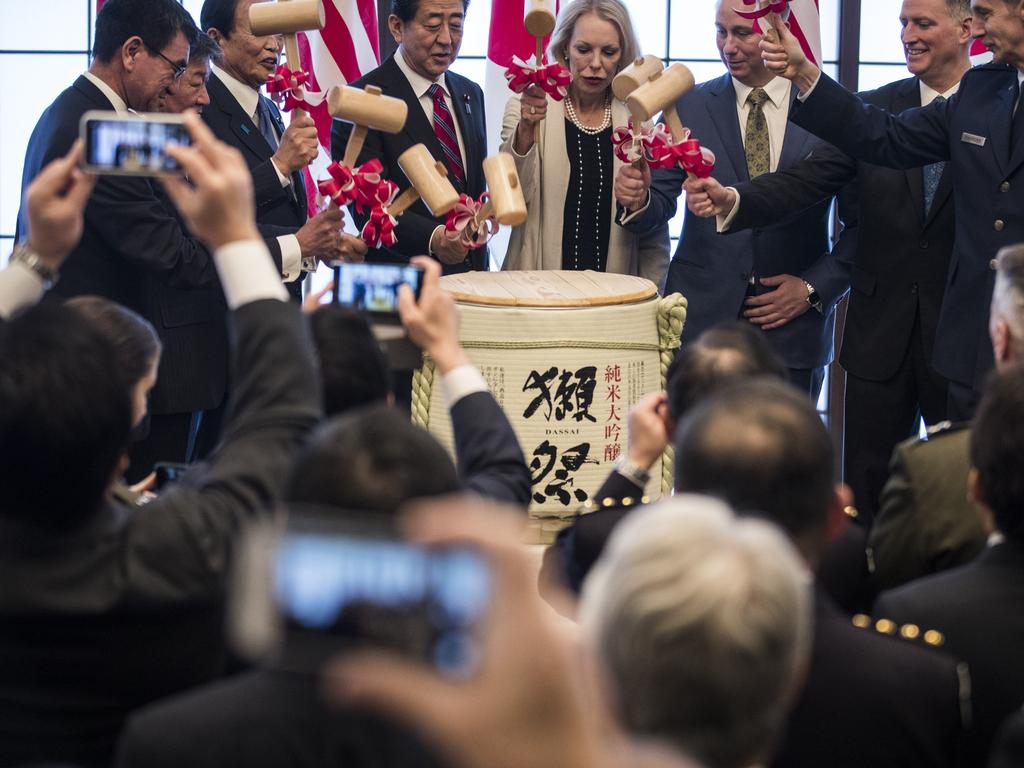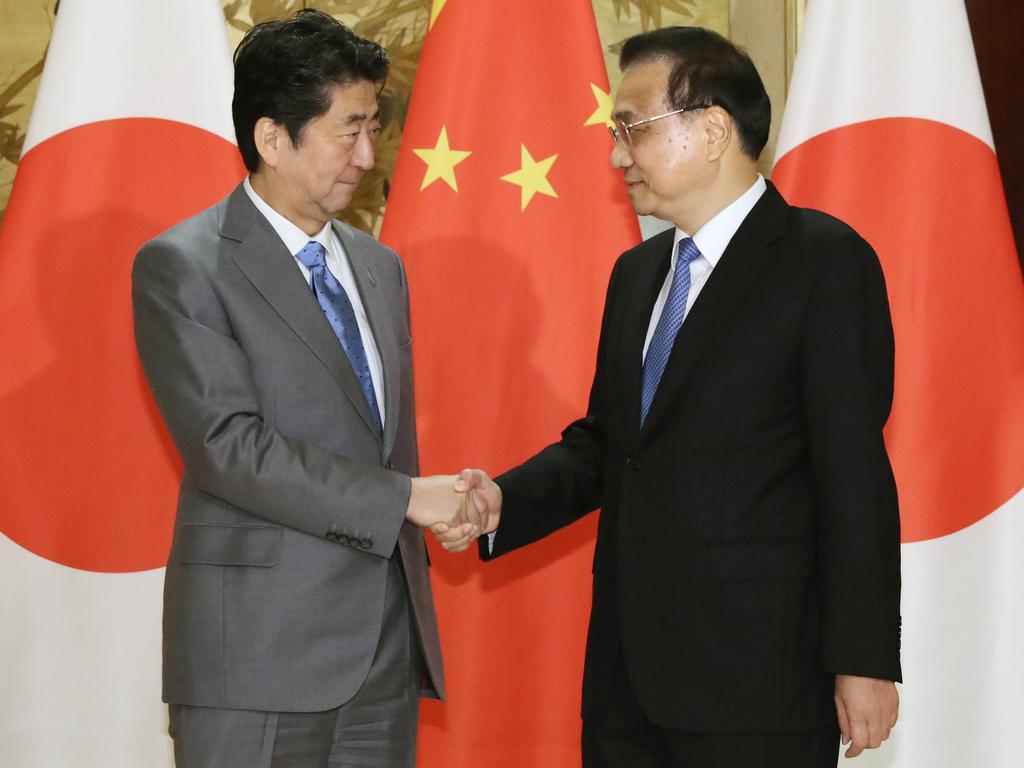Shinzo Abe lied over scandal and must quit, says mentor
Shinzo Abe should resign as Japan’s prime minister for lying to parliament, his predecessor and mentor has said.

Shinzo Abe should resign as Japan’s Prime Minister for lying to parliament about a festering corruption scandal, his predecessor and mentor has said.
Junichiro Koizumi, who served as prime minister from 2001 to 2006, said it was obvious that Mr Abe was involved in a crooked property deal involving ultranationalist supporters.
“He has told nothing other than a lie,” Mr Koizumi told Shukan Shincho, a magazine. “In the Diet he said that he would resign if he were involved, so sooner or later I think he will have to take responsibility by resigning.”
The scandal concerns a private nursery in Osaka founded to inculcate children with the nationalistic patriotism and self-sacrifice that prevailed in pre-war Japan — values with which Mr Abe and his government openly sympathise.
In February, the couple who founded the nursery were convicted of fraud over a plan to build a new school. Land had been sold to them by Mr Abe’s government for ¥134 million, less than a seventh of its market value.

Opposition politicians alleged that the massive discount was a political favour by the government. The “honorary headmistress” of the nursery was Akie Abe, the Prime Minister’s wife.
In sworn testimony before the Diet its founder, Yasunori Kagoike, said that Ms Abe had handed him an envelope containing ¥1m as a personal donation from the Prime Minister.
The Abes have consistently denied the claims, and the Prime Minister told the Diet that he would resign if he or his wife were shown to have been involved.
But eventually the Finance Ministry admitted documents submitted to the Diet were falsified to remove the names of Ms Abe and politicians. Phrases referring to the “peculiar nature” of the land deal and its “exceptional contents” were also removed.
The bureaucrat in charge of the division that submitted the falsified documents, Nobuhisa Sagawa, was promoted in 2017 to head Japan’s tax agency — as reward, Mr Abe’s opponents say, for protecting him. Mr Sagawa resigned after the falsification was exposed but said it had been perpetrated without his knowledge.
The civil servant who performed the falsification killed himself and left a note speaking of the pressure that he was under. His widow is suing the government for damages for his death.
“(Mr Abe’s) wife was the headmistress (of the nursery),” Mr Koizumi said. “How could he say that he was not involved under that circumstance?”
Mr Koizumi, 78, was one of Japan’s most popular post-war prime ministers, and Mr Abe, 65, was his close ally and protege.
Mr Abe succeeded Mr Koizumi for a one-year term as prime minister in 2006 then returned to the job in 2012.
During this time, Mr Koizumi has become an outspoken critic of the government, particularly its insistence on maintaining nuclear power after the 2011 Fukushima disaster. His son, Shinjiro, serves in Mr Abe’s cabinet as environment minister.
The Times







To join the conversation, please log in. Don't have an account? Register
Join the conversation, you are commenting as Logout